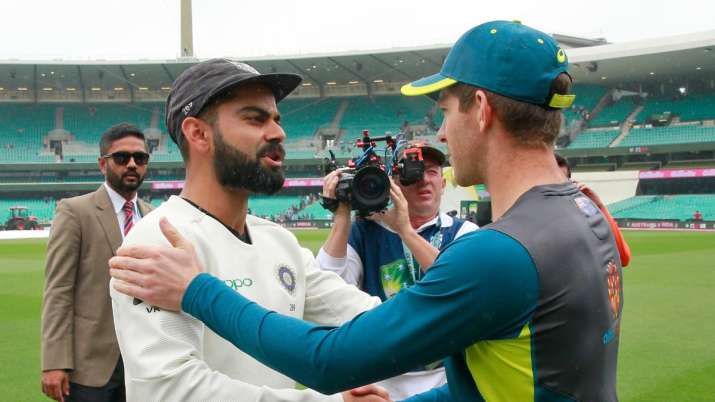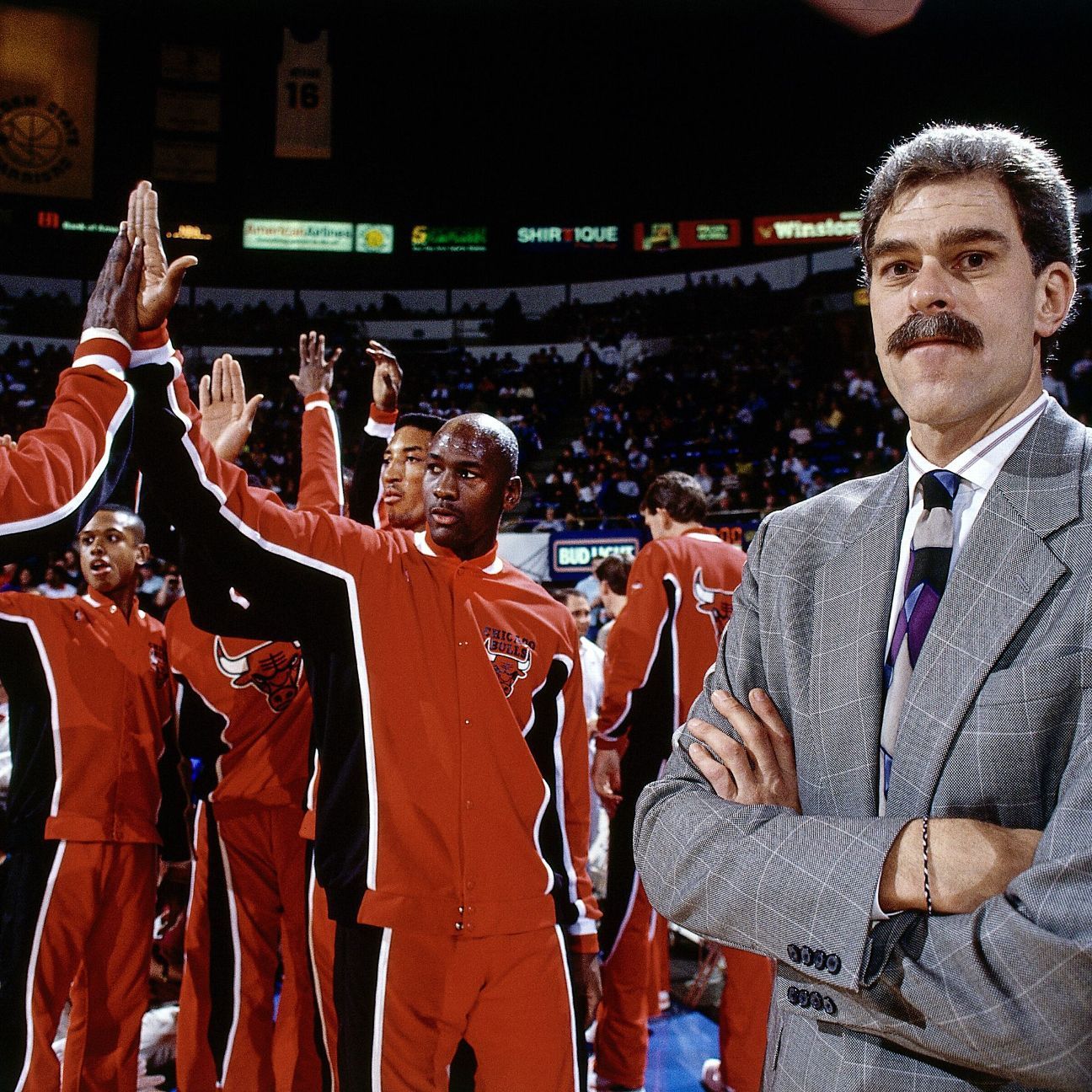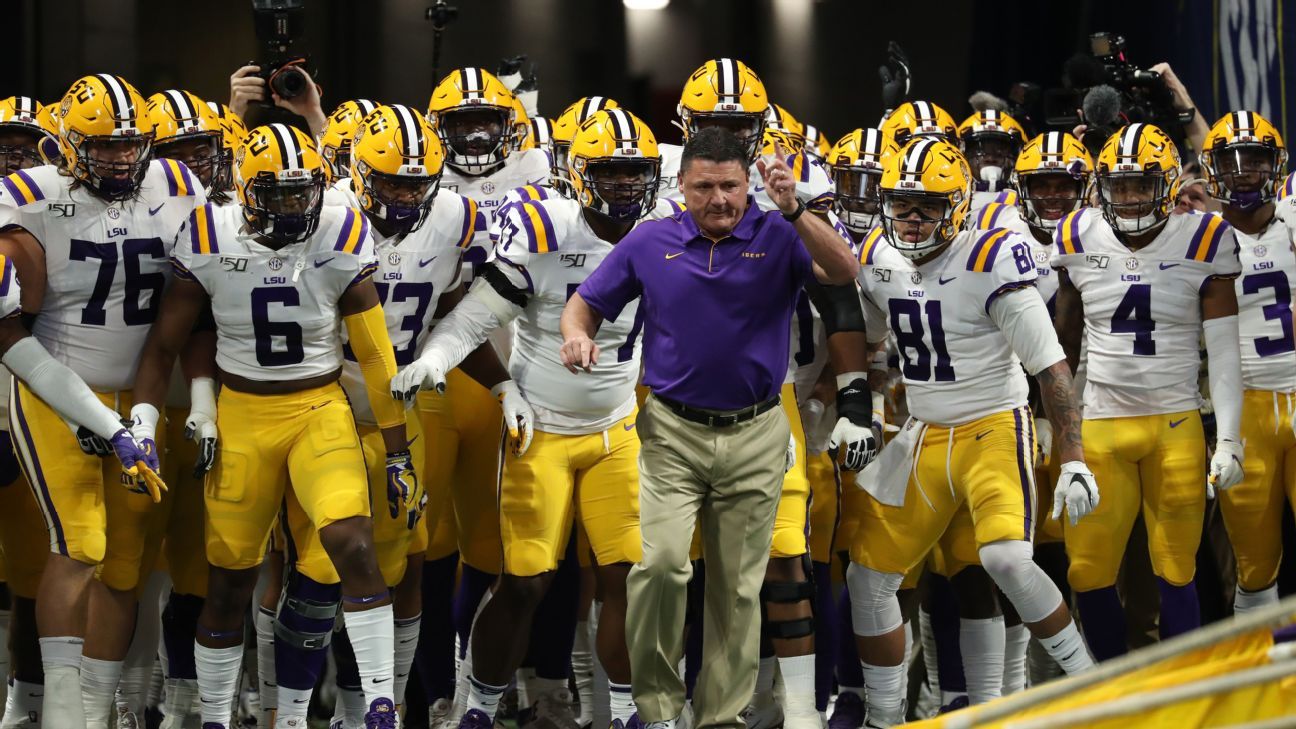Michael Jordan and the Chicago Bulls built a dynasty in the 1990s. Their six NBA titles came in a pair of three-peats and included a 72-win season, multiple MVPs and multiple scoring titles.
Our NBA experts ranked each Bulls title team from worst to best, considering the quality of each regular season and playoff run. The Bulls’ sixth title season, 1997-98, is documented in ESPN’s 10-part series, “The Last Dance.” Episodes 5 and 6 air Sunday at 9 p.m. ET on ESPN and the ESPN App.
MORE: Remembering the greatness of Jordan and the Bulls dynasty
6. 1992-93
-
Offensive rating: 112.9 | Defensive rating: 106.1
-
Regular-season record: 57-25 | Playoff record: 15-4
-
NBA Finals: Won (4-2) vs. Phoenix Suns
Right now, everyone is focused on the final season of Chicago’s second three-peat — but the final season of the first three-peat was no walk in the park, either.
The Bulls were down 2-0 in the Eastern Conference finals against the New York Knicks, and it took an incredible performance from Jordan in Game 5 of that series at Madison Square Garden — 29 points, 10 rebounds and 14 assists in 45 minutes — to swing the series in Chicago’s favor and push the Bulls into their third straight Finals. Chicago then faced a great Suns team led by league MVP Charles Barkley.
The ups and downs that team went through were a sign of things to come a few years later, when the 1997-98 Bulls were trying to inch themselves over the finish line. — Tim Bontemps
5. 1997-98
-
Offensive rating: 107.7 | Defensive rating: 99.8
-
Regular-season record: 62-20 | Playoff record: 15-6
-
NBA Finals: Won (4-2) vs. Utah Jazz
Let’s see. The GM tells the coach he won’t bring him back after the season even if the Bulls go 82-0. The star player announces he won’t play for anybody else but that coach and will retire, if it comes to that. His trusty sidekick, a top-five player who is criminally underpaid, will be a free agent and knows there’s no chance he’s returning. Ditto for the quirky third star, a rebounding savant who declared he needed a midseason “vacation” to Vegas to recharge his battery.
How can a team win anything under these incredibly stressful, adverse conditions? Easy. The Bulls had Jordan, and the rest of the NBA didn’t. — Jackie MacMullan
4. 1990-91
-
Offensive rating: 110.0 | Defensive rating: 105.2
-
Regular-season record: 61-21 | Playoff record: 15-2
-
NBA Finals: Won (4-1) vs. Los Angeles Lakers
The Bulls’ first title run also featured their best playoff record: 15-2, one surpassed at the time by only the 1982-83 Philadelphia 76ers, who went 12-1.
As chronicled in Sam Smith’s groundbreaking tell-all “The Jordan Rules,” it wasn’t always smooth sailing for the Chicago team that had lost to the eventual champion Pistons in the Eastern Conference finals the previous two years. Jordan, battling a reputation as a great scorer who couldn’t win it all, struggled to trust his teammates and buy into Phil Jackson’s triangle offense. Still, the Bulls finished with the East’s best record and swept aside Detroit in the conference finals.
After Jordan missed at the buzzer in Game 1, the Bulls took four straight off the Lakers, highlighted by Jordan’s “spectacular move” layup and his feeds to John Paxson for several key shots in the clinching Game 5. At age 28, Jordan was finally a champion. — Kevin Pelton
3. 1996-97
-
Offensive rating: 114.4 | Defensive rating: 102.4
-
Regular-season record: 69-13 | Playoff record: 15-4
-
NBA Finals: Won (4-2) versus Jazz
A year after winning 72 games, this group rolled to 69 more wins, leading the league in points per game (103.1) and offensive rating (114.4) and holding the fourth-best defensive rating at 102.4, according to Basketball Reference.
After dominating the first three rounds of the Eastern Conference playoffs with an 11-2 record, the Bulls ran into a tough Utah Jazz team and needed Jordan to carry them across the finish line. In his memorable “Flu Game” performance in Game 5, Jordan rose to the occasion with 38 points and closed down the series a few nights later. — Nick Friedell
2. 1991-92
-
Offensive rating: 115.5 | Defensive rating: 104.5
-
Regular-season record: 67-15 | Playoff record: 15-7
-
NBA Finals: Won (4-2) vs. Portland Trail Blazers
After defeating the Lakers to win their first NBA championship, the defending champions were the preseason favorites for the first time — and Chicago did not disappoint. The Bulls dropped two of their first three games, but went on to win 36 of their next 39 games to establish themselves as the best team in the league.
Though this season did feature the most playoff games of any Jordan-led team (23), the 1991-92 Bulls were a model of offensive efficiency. Just like the year before, four of the team’s five primary starters (Jordan, Scottie Pippen, Horace Grant, Paxson) shot above 50% for the season. Jordan coasted to his third MVP, Grant averaged a double-double, and Pippen averaged 21.0 points, 7.6 rebounds and 7.0 assists, becoming only the seventh player to reach those numbers over an entire season. It was the peak of the first three-peat. — Andrew Lopez
1. 1995-96
-
Offensive rating: 115.2 | Defensive rating: 101.8
-
Regular-season record: 72-10 | Playoff record: 15-3
-
NBA Finals: Won (4-2) vs. Seattle SuperSonics
Though the 2015-16 Warriors topped their long-standing record by one win, the 1995-96 Bulls are still the greatest team ever. They were an organically crafted superteam that leveled the league with a kind of dominance never seen before and a complete greatness that won’t ever be touched.
A trade for the mercurial Dennis Rodman had the potential to create dysfunction and distraction, but it only elevated them further. They started the season 41-3 and were the first team to ever win 70. Jordan was at the peak of his prowess, leading the league in scoring. They went 15-3 in the postseason, finishing the Sonics in six games for their fourth title in six years.
With a cumulative record of 87-13 (regular season and playoffs), they have the best overall record in NBA history — and unlike the 2015-16 Warriors, they also have the hardware. — Royce Young
Source link


